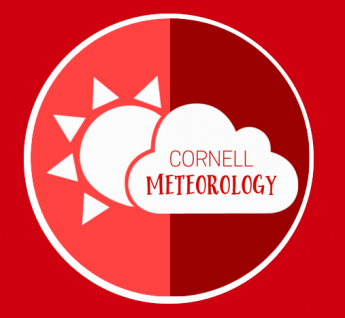Conferences
AMS Conference
Cornell students attend the American Meteorological Society’s conference annually to learn about new atmospheric science research and industry developments. Cornell also holds an alumni reception at the conference.
Northeastern Storm Conference
Each year, Cornell sends students to the Northeastern Storms Conference at Northern Vermont University–Lyndon to both learn and share cutting-edge atmospheric science research. The conference is both the longest-running and largest student-run weather conference in the country.
Great Lakes Atmospheric Science Symposium
Cornell students annually attend GLASS, a one-day atmospheric science symposium, at SUNY Oswego. The event features a keynote speaker and student-led research presentations.
Research
Northeast Regional Climate Center
The Northeast Regional Climate Center (NRCC) is located in the Earth and Atmospheric Sciences Department at Cornell University in Snee Hall. The NRCC stores and manages climate data for the Northeastern United States, including all of New England, New York, Pennsylvania, New Jersey, Maryland, Delaware, and West Virginia.
The NRCC serves as a resource for consulting on climate data and information with several groups, ranging from insurance companies to golf course managers. In addition, the NRCC issues its own products including forecasts for Stewart’s Disease in corn, Turf Grass forecasts, mosquito modeling, and a climatology reference tool for East Coast Winter Storms. These services are invaluable for the public in the Northeast – particularly for farmers, who often consult with the NRCC and its products for advice on how to best tend their crops.
The NRCC also provides Atmospheric Science students at Cornell the opportunity to get involved with research projects in many different fields within meteorology and climatology. Students commonly present on their work at various conferences throughout the year, and can even develop their work into research projects which satisfy Honors graduation requirements in the College of Agriculture and Life Sciences. In addition, the portfolio of work they develop as students within the NRCC can be helpful when searching for operational meteorology positions with the government, or when choosing graduate programs for continuing their education.
